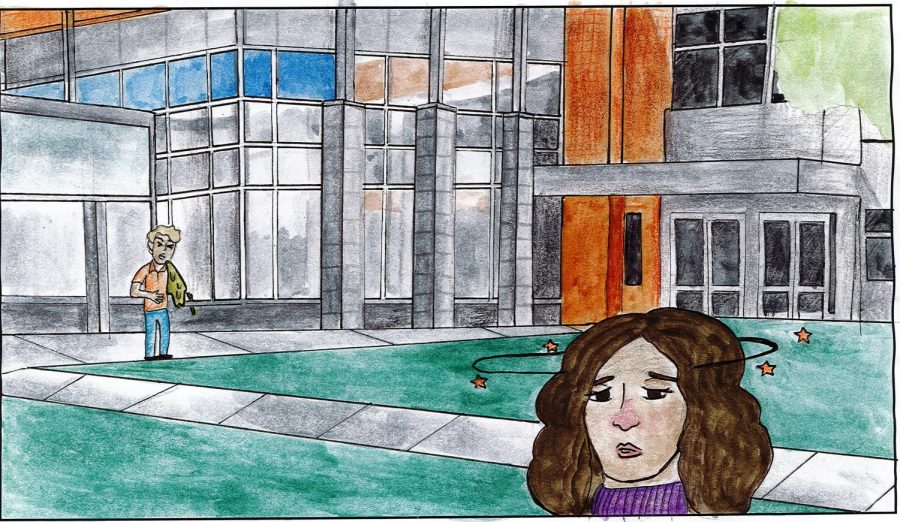Sickness in school.
People do not take good enough care of themselves during flu season.
February 14, 2020
Ah, here we go again, the question that is asked every school year: Can a student go to school with a fever? Before you answer this question, think about how you would feel if someone with a fever came to school, plopped down in a desk right next to you or around you, started sneezing and coughing into their hands, and then touching materials you may end up touching as well. Change your mind? Coming into school contaminated with an illness is like going to the bathroom and not washing your hands; it’s just downright disgusting and can spread so easily to other people.
It’s understandable that students do not want to miss class, especially since there are many students who take a boatload of AP classes and are drowned in homework after missing even one school day. On the other side, though, the student will still get an extra day of completing that assignment, and it would probably feel much better sitting at home and recovering instead of walking around, coughing, sneezing and trying to focus. By going to school it creates a stigma around everybody, other students will feel paranoid and try to avoid getting sick, while the student that is sick will be feeling very uncomfortable. This may even hinder learning, and will make somebody who is a “clean-freak” may be a little less excited going to school each day.
It’s also understandable that athletes may want to push through the pain and go to school being sick due to the fact that it’s game day. That may be, but unless you’re Michael Jordan, playing with a fever may not be so comfortable, and you may not get the best results. If you want the best from your team, and you want to win, it may not be the absolute best idea, as you could possibly bring the team down, feel out of it, or even get your teammates or coach sick, something that would not be good for the rest of the season. You do not want anybody upset with you because you got them sick, so the best option would be to stay home, rest up and prepare for the next game.
If a sick student does decide to go to school though, the best option for everybody, even if totally healthy, is to wash your hands. It is simple but one of the best defenses against an illness, and may stop or slow down the spread of a cold. Other methods that can assist in trying to stay healthy include covering when you cough or sneeze and trying to not come into contact with people as much as you normally would. All of these small steps may seem meaningless, but they are very good precautionary measures when it comes to trying to avoid a sickness.
The sickness that could spread may just not stop at the student. Once the student comes home with an illness, it can then be spread to family members such as younger siblings. These siblings could be young or new to the world, and giving them an illness can be much more severe on them then on you. One little illness could create havoc and torment for a family for weeks, so if you want to prevent that from happening, abstain from school until feeling better. The same goes for friends as well. If they see that you are sick, they may want to avoid you and not be around you, and that may not make out to be a very fun day of school. So if you do not want to get others sick and you do not want to be lonely on a school day, the best suggestion would be simply to stay home.
Bigger viruses such as the flu or pneumonia aren’t as big of a concern, as students usually always stay home from those, but even an illness as insignificant as a cold can still spread a great amount of germs, and can get a large amount of students and teachers sick, and especially around winter, these colds spread fast, making it a cause for concern. It is understandable that school is stressful, and there are many events that make missing a day of school tough, but staying home at least one day can make for a healthier school environment.











